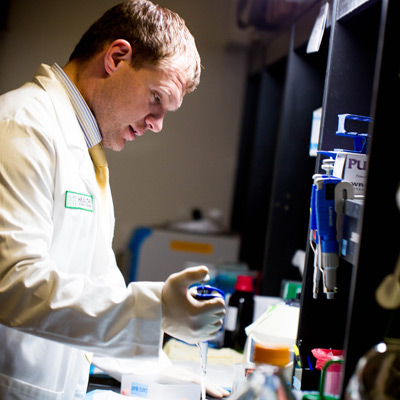Guidelines bring Alzheimer’s blood test one step closer
 A simple blood test to detect early Alzheimer’s disease is a step closer to being used to screen older adults.
A simple blood test to detect early Alzheimer’s disease is a step closer to being used to screen older adults.
Detailed standardized guidelines that are needed before a blood test could be used in practice have been published in Alzheimer’s & Dementia. The guidelines establish protocols and reflect the continued efforts of an international working group that includes UNT Health Science Center.
“If we are ever going to get a blood test for Alzheimer’s disease into the hands of primary care providers, we must have guidelines,” said Sid O’Bryant, PhD, Interim Director of the Institute of Aging and Alzheimer’s Disease Research.
The highly rigid guidelines will be used in research for blood-based biomarkers of Alzheimer’s disease and will ensure every lab is following the same procedures when collecting blood, said Dr. O’Bryant, a member of the group and lead author of the paper.
“You can create a blood test in the lab, but if you don’t have a systemized way for collecting the blood, the test will never go into practice,” he said. “You’ll have one lab doing it one way and another lab doing something different.”
Dr. O’Bryant has worked for several years with representatives from across the United States, Australia, Germany, England and other countries to create the standards. Everything from the type of needle used to draw blood to the length of the storage time is specified in the guidelines.
Just as with blood tests for other diseases, such as diabetes, protocols must be established to make sure every lab performs the test exactly the same. Such guidelines are needed before FDA approval can be sought to use the test in a clinical setting.
“For UNTHSC, our next step is take these blood guidelines and implement them into a clinical trial,” Dr. O’Bryant said. “That’s never been done before.”




Social media